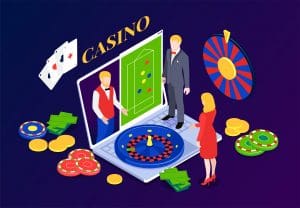What are Factors and Multiples?
What is a Factor?
When we multiply two numbers, we get a product. These numbers that are multiplied are known as factors. Suppose we have a number n. We multiply two numbers, f, and g, to get n. Then f and g are called the factors of n. All numbers have negative factors also; however, for learning purposes, we only take the positive factors of a number into consideration. Let us take a look at a few examples.
- Factors of 6: 1, 2, 3 and 6
If we multiply 6 and 1 we get the number 6 itself ( 6 * 1 = 1 * 6). Similarly, if we multiply 2 and 3 we get 6 (2 * 3 = 3 * 2)
- Factors of 9: 1, 3 and 9
All numbers can be broken down into their factors. This list contains both prime numbers and composite numbers. However, when talking about factors, we must also take a look at prime factorization.
What are Prime Factors?
According to the Fundamental Theorem of Arithmetic, any natural number that is greater than 1 is either a prime number or can be expressed in the form of the product of a certain sequence of prime numbers. Thus, such prime numbers that can be multiplied with each other to give a composite number are known as the prime factors of that number. This process of breaking down a number into its prime factors is known as prime factorization. In integer factorization, the factors are not repeated; however, in prime factorization, there can be a repetition of factors. Let us see a few examples below.
- Prime Factors of 6: 2 * 3
As 2 and 3 are prime numbers and their product yields 6, they form the prime factors of 6.
- Prime Factors of 9 : 3 * 3
Fun Factor Facts
- Factors can never be decimals or fractions. They are always whole numbers or integers.
- If we factorize an even number, it will always have 2 as one of its factors.
- Excluding 0, all numbers that end with 0 or have a 0 in their unit’s place will always have 2, 5, and 10 as their factors.
- If a number ends with 5 or has 5 in its unit’s place, then 5 will always be a factor of that number.
- When we solve or simplify an algebraic expression, we always use factors.
What are Multiples?
We multiply a quantity, and integers the products that we get are called multiples. Thus, if we are given two numbers, r, and q, we can say that q is a multiple of r if q = nr, where n is known as the multiplier. The list of multiples associated with a number is endless. Let us see how to find the multiples of a given number.
- Multiples of 5: 5, 10, 15, 20, 25 ….
When we multiply 5 with 1, we get 5. Similarly, if we multiply 5 and 2, we get 10. As we keep multiplying 5 with different integers, our list of multiples of 5 keeps on increasing.
Conclusion
Factors and multiples are used in a variety of topics, such as GCF (greatest common factor) and LCM (least common multiple). Thus, it is vital for kids to understand how to find the factors and multiples of numbers. The best way to instill a strong foundation in the subject is by joining an institute such as Cuemath. At Cuemath, the certified tutors use several resources to deliver a lecture that is not only effective but is fun-filled. They focus on clearing concepts and provide a holistic learning environment to kids.
Since you’re here …
… we have a small favour to ask. More people are reading Side-Line Magazine than ever but advertising revenues across the media are falling fast. Unlike many news organisations, we haven’t put up a paywall – we want to keep our journalism as open as we can - and we refuse to add annoying advertising. So you can see why we need to ask for your help.
Side-Line’s independent journalism takes a lot of time, money and hard work to produce. But we do it because we want to push the artists we like and who are equally fighting to survive.
If everyone who reads our reporting, who likes it, helps fund it, our future would be much more secure. For as little as 5 US$, you can support Side-Line Magazine – and it only takes a minute. Thank you.
The donations are safely powered by Paypal.












